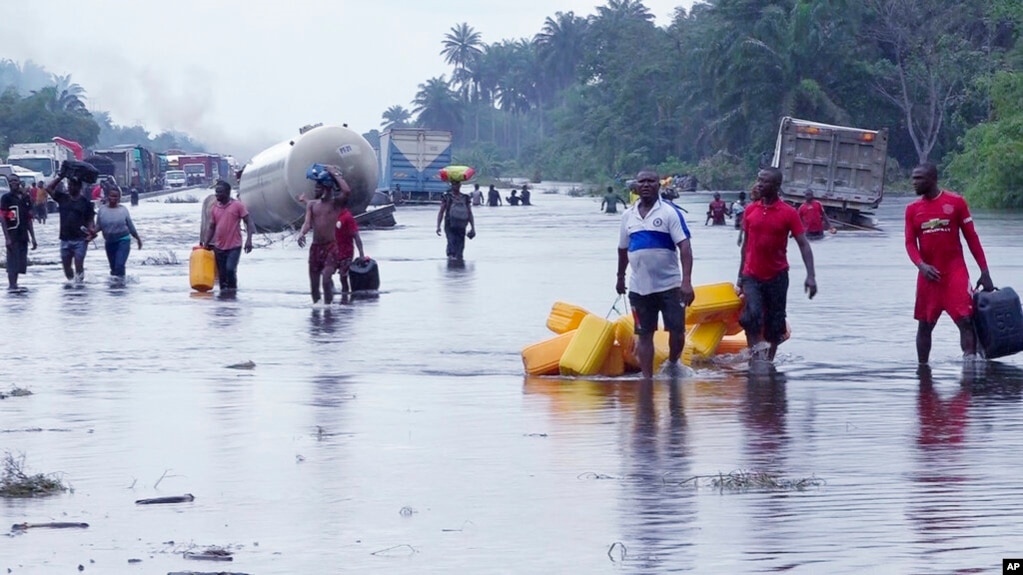
Heavy rains behind floods that killed more than 600 people in Nigeria this year were about 80 times likelier because of human-induced climate change, scientists reported Wednesday.
The floods mainly struck Nigeria but also Niger, Chad and neighboring countries, displacing more than 1.4 million people and devastating homes and farmland in a region already vulnerable to food insecurity.
Researchers from the World Weather Attribution (WWA) consortium said in a study that the floods, among the deadliest on record in the region, were directly linked to human activity that is exacerbating climate change.
They matched long-term data on climate, which shows the planet has warmed by about 1.2 degrees Celsius since 1800 as carbon emissions have risen, against weather events.
The heavy rainfall that sparked the floods was 80 times more likely because of “human-caused climate change,” according to their findings.
In addition, “this year’s rainy season was 20% wetter than it would have been without the influence of climate change,” they said.
“The influence of climate change means the prolonged rain that led to the floods is no longer a rare event,” the study found.
“The above-average rain over the wet season now has approximately a 1 in 10 chance of happening each year; without human activities it would have been an extremely rare event.”
More than 600 people were killed in Nigeria alone because of the floods from June to October this year, and nearly 200 in Niger and 22 in Chad.
The report comes as COP27 climate talks are under way in Egypt’s Sharm el-Sheikh, where developing nations are demanding rich polluters pay for climate-change linked calamities.
Africa is home to some of the countries least responsible for carbon emissions but hardest hit by an onslaught of weather extremes, with the Horn of Africa currently in the grips of a severe drought.
“This is a real and present problem, and it’s particularly the poorest countries that are getting hit very hard. So it’s clear that solutions are needed,” Maarten van Aalst, director of the Red Cross Red Crescent Climate Centre, said at a WWA press conference.
The WWA publishes rapid-response reports following extreme climate events.
Their studies are not peer-reviewed, a process that can take months, but are widely backed by scientists.

